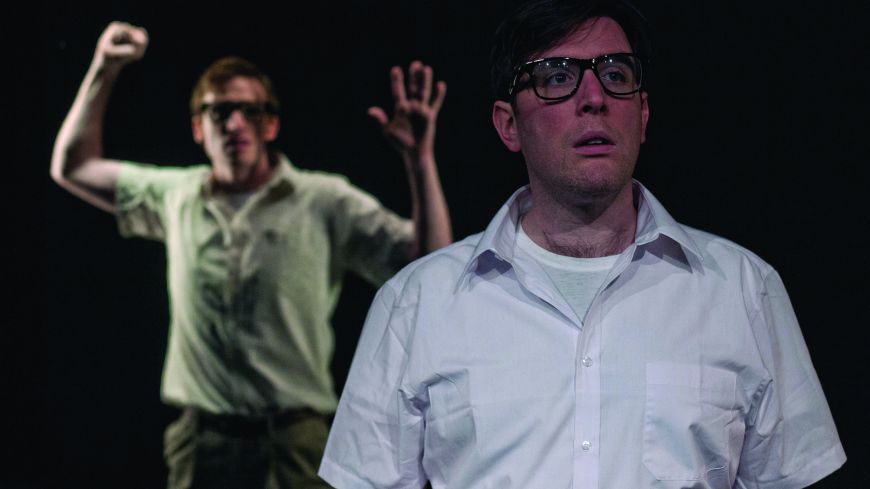
The slow, plinky-plonk, whistling music, that sounded like the background to a light-hearted French film, wafted through the theatre, adding irony to the deeply moving subject matter that was about to be played out before us.
Analogue, in this ground-breaking piece, is looking at the very human detail of the life of Henry Molaison before and after his experimental brain surgery in 1953, involving the removal of his hippocampi to try to cure his severe epilepsy.
The surgery left Henry Molaison with the loss of the ability to create new long-term memories as well as losing all the memories of the last two years of his life. Essentially, he was destined to pass the remainder of his life like an eternal child living in the present. This made him a phenomenon to neuroscience.
When he died in 2009, his brain was dissected and the operation streamed on the internet where it was watched globally by 400,000 people. His brain now exists in 2401 carefully preserved paper thin slices, hence the play’s title. Research for the story has been aided by support from The Wellcome Trust.
A large screen, known as the Macrotome, is an astonishing piece of equipment that essentially took the role of the 5th presence on stage. The play’s programme gives a full and technical description of this amazing construction that was inspired by the cryomicrotome that was used to dissect the brain of Henry Molaison.
The filming of the brain slicing is shown on the screen like a perpetual scanning of a strange botanical document and creates an arresting effect. The screen can revolve within its frame and actors can perform in front or behind, so that they appear inside the projected image.
The entire effect of this ‘black box’ of the 21st century was visually and technically highly impressive and gave the experience an ingenious filmic quality as the story flits through past and present.
In an era when dementia, and the fear of it in the growing elderly population is prevalent, the manifestation of symptoms, that appeared similar to a lay person, was especially heart-breaking when it was shown being experienced by a bewildered young man whose handsome photo on the screen added poignancy to this sad and moving tale.
There was an over-riding sense of kindness throughout the text, from his parents as they discussed the hope for Henry before his operation then their dealing with the tragedy of its result, to his nurse and to Lauren, Henry’s girlfriend.
These emotions were sensitively relayed by the small versatile cast through simple and effective costume changes and of course their fine acting. Great ‘50s music from Eddie Fisher and Guy Mitchell set the period well.
The play premiered in the 2011 Fringe when it won a Fringe First Award. There was a post - show discussion on 30th March involving Richard Morris and Thomas Bak, both Professors of Neuroscience at the University of Edinburgh. The Wellcome Collection in London has an exhibition called Brains: The mind as matter that runs from 29 March - 17 June 2012.
Show times
Fri 30th and Sat 31 March, 7.30pm (UK tour continues til 19 May)
Tickets
Tickets £17/£13

